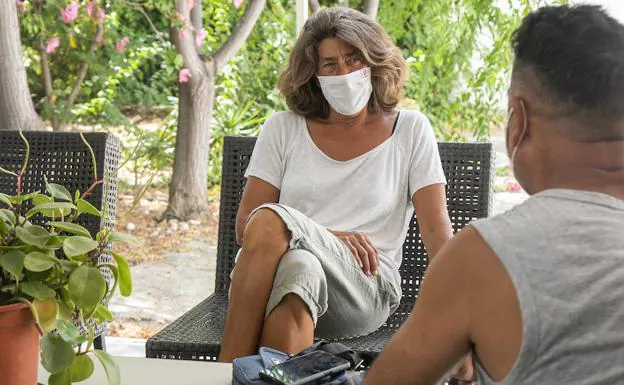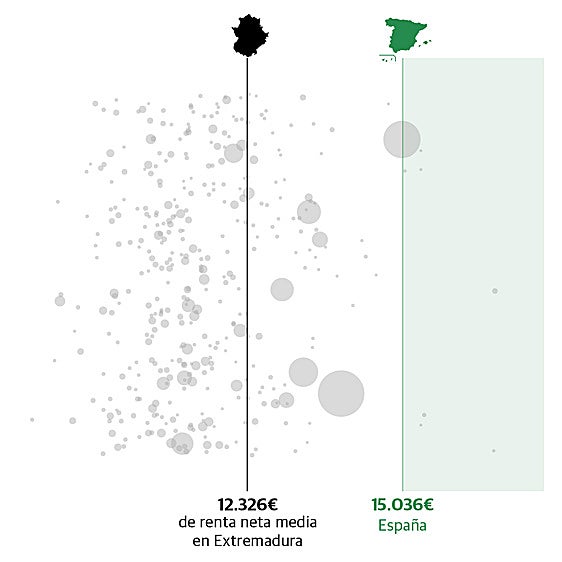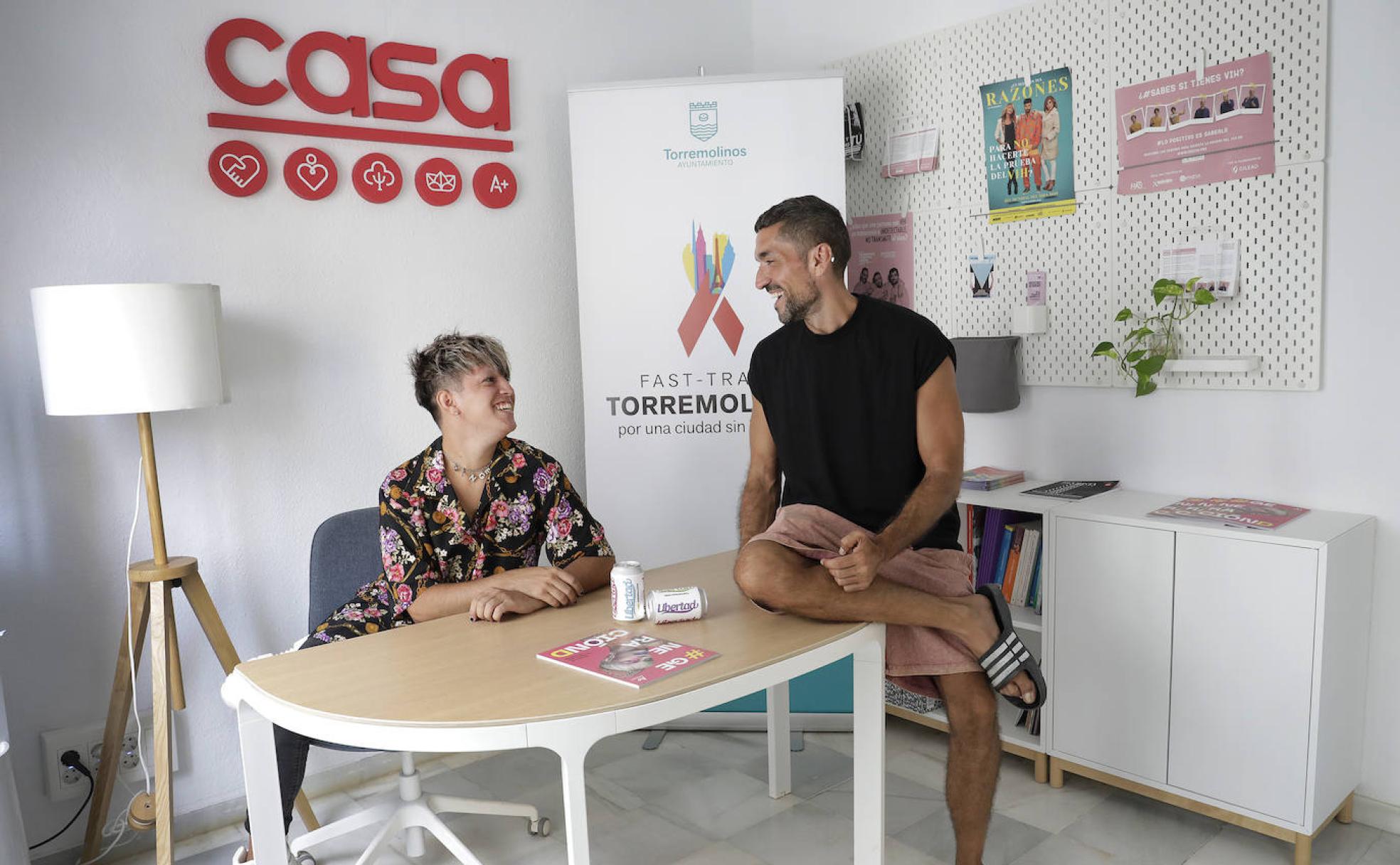HIV and Aids: 40 years fighting a social stigma
World Aids Day: 1 December ·
From a certain death to living with a virus. Now a vaccine could mean we are on the final straight of the race against HIVRamón Pérez
Wednesday, 1 December 2021, 20:17
Seventeen years ago, Antonio (not his real name) stood outside the office of the Malaga Anti-Aids association Asima, but he didn’t dare go in. The stigma and discrimination associated with his illness prevented him from asking for help. One day the director of the organisation arranged on the phone to meet him in the city’s Plaza de la Merced so that no one would see him going in the office. At first he was scared, but today he lives in the Asima shelter, and is one of the pillars of the association:
“Today, without Antonio, Asima wouldn’t exist,” said Alicia.
Ginger discovered the association Apoyo Positivo, which has a centre in Torremolinos, more than a year after being diagnosed with the illness. She wanted to find out more about the organisation and joined one of its workshops, which now she runs herself. She started out as a volunteer until she was offered the chance to join the training team.
Antonio and Ginger don’t know each other, but they share the same circumstances they both live with HIV.
It’s now four decades since the release of the first official document speaking of the new pandemic of the 20th century: acquired immune deficiency syndrome, better known as Aids.
This is caused by the human immunodeficiency virus, HIV, which leads to the development of the illness.

Over the years, medical research has taken giant leaps forward to create medication to control the virus, so that it cannot develop further or be transmitted to other people. For the first time in more than ten years, a vaccine against HIV has reached phase III, the final stage of trials.
Despite progress made in recent years, there is still a stigma attached to HIV and Aids. The lack of information and the taboo surrounding sexuality are the main obstacles in the way of preventing and properly treating HIV.
According to the Andalucía HIV/Aids report of 2019, produced by the regional health ministry, the province of Malaga had the highest rate in the region of new HIV diagnoses between 2013 and 2019. Currently the survival rate of patients with HIV has improved thanks to antirretroviral treatments, however it can still develop into a serious and incurable illness.
The start of the pandemic
Manolo Castaño, a specialist in infectious diseases at Malaga’s Regional Hospital, said that he started to see patients with HIV in 1988. The first ten years of the pandemic were marked by a high death rate. With no medication, the probability of developing the final stage of the virus, Aids, was too high.
“In 1996-1997 we had the first treatments, but those early ones were toxic and very complicated to take,” he explained.
Antonio was one of the patients who started to take those first pills as he caught the virus at the end of the eighties. In fact he was diagnosed when he was 14 or 15.
“I have taken as many as 30 tablets a day,” he said. However he added that he did not take them all as he knew there were people who died taking the medication.
“The truth is that there were a lot of people dying alone in the street,” said Alicia.
Noticia Relacionada
Some 5,400 people live with HIV in Malaga province
According to the 2019 Andalucia HIV/Aids report, the number of deaths from HIV and Aids started to fall significantly in the mid-80s, going from 5,749 deaths in 1986 to 3,019 the following year.
Jorge Garrido, director of Apoyo Positivo, said that activism in the first decade was essential to get medication tested.
“The scientific research into HIV was done thanks to the people who went out and demanded those studies,” he explained.
Forty years of progress
“Today HIV is controlled with treatment, but it has to be for the rest of your life,” said Castaño.
Now people living with the virus can lead a normal life, as they cannot transmit HIV if they are properly controlled with medication. For the last eight to ten years there have been new drugs that can be taken in one single pill once a day.
“The effectiveness of the current medication to control HIV is over 90-95%,” said the specialist. This means that the illness cannot advance and cannot be passed on to others.
“Before we called them patients; now we talk about people who live with HIV,” he added.
With more information about HIV and better treatments being developed over the last two decades, the demand for resources from associations like Asima fell. In 2012 the shelter stopped being used exclusively for people with HIV and was opened to anyone in a situation of social exclusion.
“People with HIV can live a normal life. What’s more laws and legislation have progressed in recent years. Now they can’t throw you out of a care home or a school for having the virus,” she explained.
Information
Before Ginger caught HIV, all the information she had about the virus came from internet, films and documentaries. The only time she had been given a talk on sex education it was directed at a heterosexual audience.
“I felt out of place as an LGBT person; in that talk, all they spoke about was condoms and contracceptive pills,” she said.
She was 19 when she caught HIV and she didn’t know what to do or how to deal with it. Her doctor decided to do a full blood test but did not explain why.
“When I went to get the results they told me I had tested positive for HIV; my mum was next to me, they didn’t respect my privacy,” she said.
For her, first came a year’s “mourning” phase, when she had no hopes for the future. She believes that now there is still not enough information available about where to go when someone finds out they are HIV positive.
“Apart from the ‘don’t worry because it’s not like it used to be’ message, there is none of the information that I needed,” she said.
In Apoyo Positivo Ginger works on informative campaigns and eary detection programmes.
“We’ve done a lot of tests and people have discovered that they had HIV at that moment,” she added.
According to Castaño, HIV vaccines have been being trialled since the 90s, but until now an effective one has not been found.
“HIV is an unusual virus; it’s not like coronavirus, as the human immunodeficiency virus has a lot of variants; in fact it varies more than the flu virus in one year,” he explained.
Despite this difficulty in obtaining antibodies to neutralise HIV, we have recently learned of Mosaico, a vaccine project that is now in its final phase of trials. This, said the doctor, would be a huge step forward for public health.
The technology behind Mosaico is similar to the vaccine against SARS-CoV-2, an adenovirus modifed to carry proteins characteristic of the virus and make the immune system generate specific antibodies.
The trials will take between 24 and 36 months, with the collaboration of 4,000 people from around the world, of whom 280 are in Spain.
Social stigma
Despite the progress in medical research, society has been left behind with its old ideas, according to Ginger. “A lot of people don’t know what HIV is but they do know it’s related to Aids.”
Meanwhile Antonio believes that people still discriminate against those with the virus. “Although there are pills against HIV, the social stigma hasn’t changed.”
Still today there are people who think that HIV can be passed on through a casual contact or that only people from the LGBT groups can catch it.
However the virus can still be passed on through the blood or body fluids such as semen, vaginal secretions or breast milk; and not through saliva, tears or sweat.
All the experts interviewed for this report agreed that improved sex and relationship education should be implemented to help reduce the stigma. This education should be a message to be careful, rather than a discourse charged with accusations.
“It’s more than proven that sex education is a basic necessity in schools, so why don’t we teach it?” said Alicia.
And while clinical trials continue, for the time being education is the best vaccine we have against HIV.




